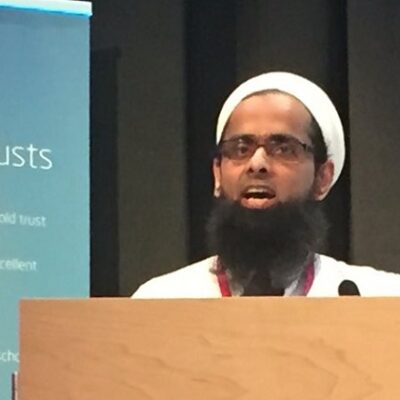The government should replace “stubbornly” underperforming schools with new “phoenix” free schools, rank multi-academy trusts on improvement and buy out PFI contracts to level up education, according to a new report.
Research by the conservative think-tank Onward and the charity New Schools Network, which supports free schools, found that 200,000 children lived in areas with no schools that are rated at least ‘good’.
A DfE spokesperson said the government wanted to “move decisively” to a system built on strong MATs, and would consult on plans to bring consistently under-performing schools into such trusts.
‘Phoenix’ schools
Unity Howard, NSN’s director, told Schools Week underperforming schools should be replaced by a new wave of “phoenix” free schools as a last resort, “run by people with a proven track record”.
The report proposes initial sponsorship by the DfE-backed Falcon Education Trust, which was founded to transform “orphan” schools.

However, Leora Cruddas, CEO of the Confederation of School Trusts, noted there was “already a route for regulators to intervene in failing schools”, by bringing in strong trusts to support improvement.
The government’s free schools’ initiative has flagged in recent years, with just 21 schools confirmed in each of the two most recent waves, compared to the 77 announced in 2016.
MAT rankings
The report recommends inspecting MATs and ranking them on school improvement measures, including attainment, behaviour and teacher retention.
But Michael Pain, from MAT support firm Forum Strategy, said pitching trusts against each other was “unhelpful and unsophisticated”, and threatened to undermine collaboration and willingness to help struggling schools.
“It doesn’t matter if you’re top if you have miserable children who don’t understand anything other than sitting exams,” added Jeff Marshall of academy advisers J&G Marshall.
Carrot and stick for trusts
MATs should be “aggressively” used to boost standards, with more generous funding to take on under-performing schools but the lowest-ranked MATs banned from doing so.
Cruddas agreed that strong trusts must be “funded properly” to complete the government’s vision of a fully academised system, but noted that RSCs already “have conversations with trusts where there needs to be a pause in growth”.
The report also argues schools should be allowed to choose to leave MATs in certain circumstances.
Extra teacher cash
The authors said top teachers should receive an extra £10,000 to work in struggling schools, and schools in deprived areas should get “teacher premium” cash for professional development.

Sir Hamid Patel, CEO of Star Academies, said he supported “incentivisation for great teachers”, as well as empowering strong MATs.
Timo Hannay, founder of education data firm SchoolDash, also welcomed the proposals. He highlighted limited incentives for teachers to work in poorer and lower-performing schools, which typically have less experienced staff.
Professor John Howson, chair of jobs site TeachVac, said the call for extra funding raised a “fundamental question” about the national funding formula, however, based on “a view of equality providing equal shares of the cake to all, based upon pupil numbers”.
PFI buyouts
One radical proposal is for “wholesale renegotiation” of PFI deals by central government to stop deals deterring sponsors of struggling schools.
The authors back buying out contracts at a discount, despite the high cost.
Ian Denison, director of Inscyte, which advises schools on PFI, warned the Treasury may not agree, as buyouts risked “letting PFI contractors off their obligations” to invest in sites before handing them over.








Good is not good enough, apparently, for Stoke-on-Trent’s Tory MP. Writing in the foreword to the NSN/Onward report, Jonathan Gullis bemoans the fact that only one Stoke secondary is outstanding and a third require improvement.
One is indeed outstanding but nine of the eleven Stoke secondary schools with inspection data on the gov’t website are good. One of the eleven requires improvement. One out of eleven is not one third. None is inadequate. Three have no data.
Gullis is doing his constituency no favours by rubbishing Stoke’s secondary schools.
‘The ‘poorest performing local authorities for primary education’, the NSN/Onward report says, include ‘Wellingborough, Kettering, South and North East Derbyshire, and Doncaster.’
The first four are not local authorities but sub-sections of larger areas. Doncaster IS an LA but 52 of the 67 primary schools with inspection data are good or better. Not an authority, then, ‘where the only [primary] schools available had been deemed Inadequate or Requiring Improvement’.